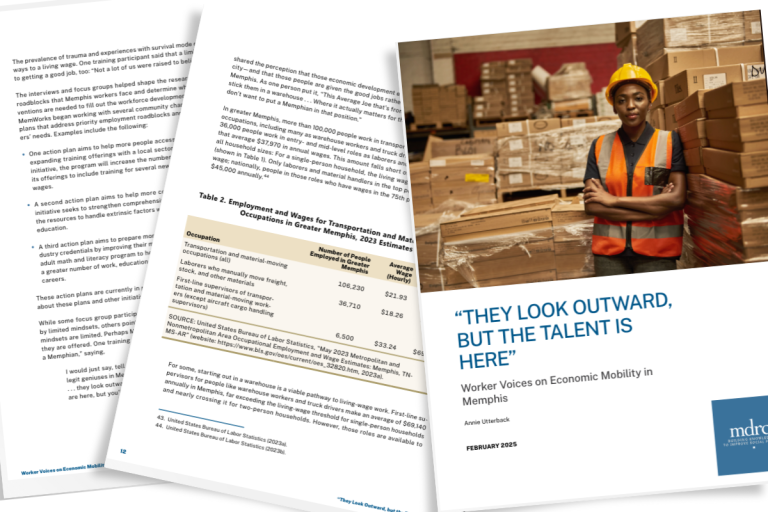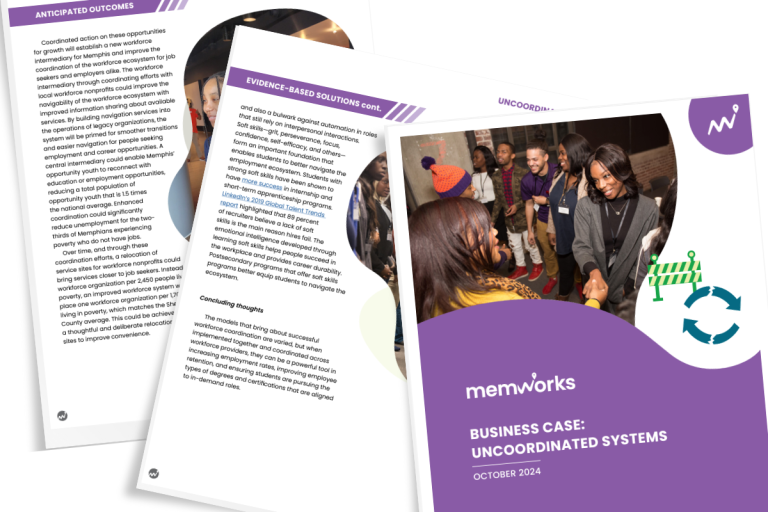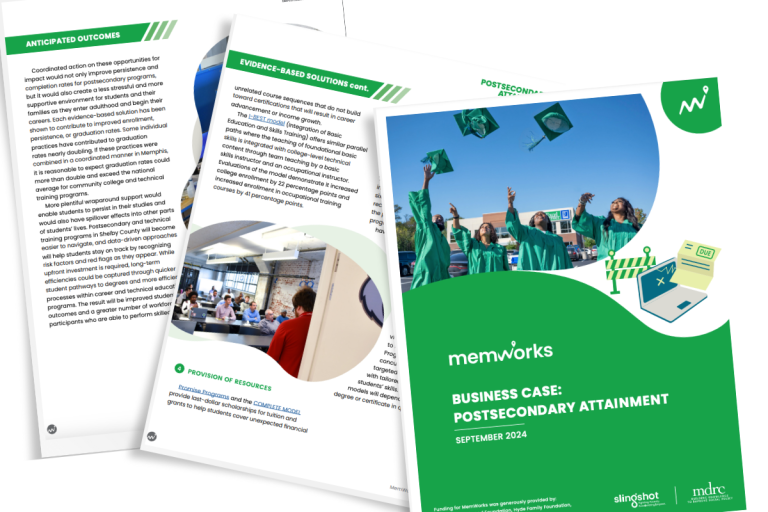Through our research, we encountered several workforce organizations across the country, and the world, that are employing evidence-based practices that address the employment roadblocks MemWorks identified. Over the past several weeks, we have profiled some of these organizations to share their impact and what we can learn from them that could help inform our efforts in Memphis. This week will be the last email in our case study series and will focus on the lessons we can learn from Economic Mobility Pathways (EMPath). This organization helps women and families experiencing poverty by employing a trauma-informed approach.
Starting next week, we’ll take a brief hiatus from our weekly MemWorks emails as we finalize additional content for the late summer and early fall. You can expect to see us back in your inboxes in August with new insights on ways we can work together as a community to break down employment roadblocks and help Memphians experiencing poverty pursue living-wage careers.
EMPath, a Boston-based nonprofit, helps women and families achieve economic self-sufficiency through job coaching, skills building, psychological coaching, and stress management. The organization aims to address chronic poverty and the accompanying trauma and stress, which hinders economic mobility and self-sufficiency.
EMPath employs two core interventions: Mobility Mentoring & Goal Setting and the Bridge to Self-Sufficiency Framework. Mobility Mentoring & Goal Setting places mentors with participants to create personalized plans and goals for economic and psychological self-sufficiency, focusing on decision-making and resource acquisition. The program includes over 30 hours of training for mentors in motivational interviewing and coaching techniques. The mentor training is trauma-informed and ensures that the support provided by mentors is sensitive to the participants’ experiences and helps mitigate the effects of trauma. The support from mentors is designed to build resilience and soft skills, which can reshape thinking and behavior patterns reinforced by the long-term effects of trauma.
The Bridge to Self-Sufficiency Framework provides support across five areas that include family stability, well-being, education and training, financial management, and employment and career management. This holistic model of wraparound support helps participants address multiple interconnected challenges at the same time.
EMPath’s trauma-informed programming shows evidence of strong results. Program participants in the Career Family Opportunity Program more than doubled their average yearly earned income, increasing average income from $18,700 at entry to $52,300 at exit. Program graduates also showed improvement in managing debt, with a reduction in delinquency rates from 25% to 8%. Participants in the Mobility Mentoring program showed increased earnings, savings, and educational attainment. EMPath’s outcomes suggest the model not only addresses immediate economic needs but also contributes to long-term economic stability and resilience.
Lessons for Memphis
Only 2.8% of children born in the bottom fifth of the economic distribution in Memphis ever reach the top fifth, indicative of the challenges of realizing economic mobility in Memphis. These severe cycles of poverty are often correlated with behavioral and physiological effects that extend beyond the challenges of resource scarcity. Over 360,000 adults in Shelby County, more than half of adults, have experienced at least one ACE. Over 110,000 people in Shelby County have experienced four or more ACEs. Experiencing childhood or adult trauma can have lasting impacts, both imminently and later in life.
EMPath’s holistic and psychologically informed approach could help address the multifaceted challenges of poverty in Memphis by focusing on both economic and psychological barriers to economic mobility. Employment outcomes are a core component of EMPath’s results but they are but one part of a multi-faceted intervention. While many organizations in Memphis strive to adopt a trauma-informed and holistic approach to their work, the EMPath model could be informative as organizations aim to maximize their impact.





